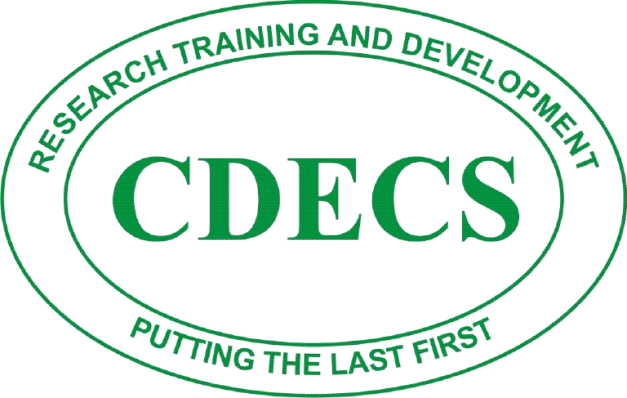Water & Sanitation
A.Implementation Support Unit (ISA)-Dhanbad
CDECS is appointed as Implementation support agencies for undertaking IEC activities under Jal Jeevan Mission in 175 village of Dhanbad district, Jharkhand since 2021. The whole purpose is to support in quality execution of JJM in the project villages.
The key role of Implementation Support Agencies (ISAs) to partner with communities to help plan, implement, manage, and maintain water supply infrastructure. The role ISAs is crucial role in ensuring the success of JJM by mobilizing communities, conducting needs assessments, building awareness, and documenting progress.
Core functions:
Formation and strengthening community-based organizations like Village Water and Sanitation Committees (VWSCs).
To conduct surveys and use tools like Participatory Rural Appraisal (PRA) to understand local needs and resources.
To conduct surveys and use tools like Participatory Rural Appraisal (PRA) to understand local needs and resources.
Assist in developing village action plans and designing water supply infrastructure
Provide technical and logistical support during the construction and installation of water supply systems.
To help in establishing systems for the long-term operation and maintenance of water supply infrastructure, including training local personnel.
Track progress, document successes, and identify areas for improvement.
Implement strategies to encourage responsible water usage and promote hygiene practices.
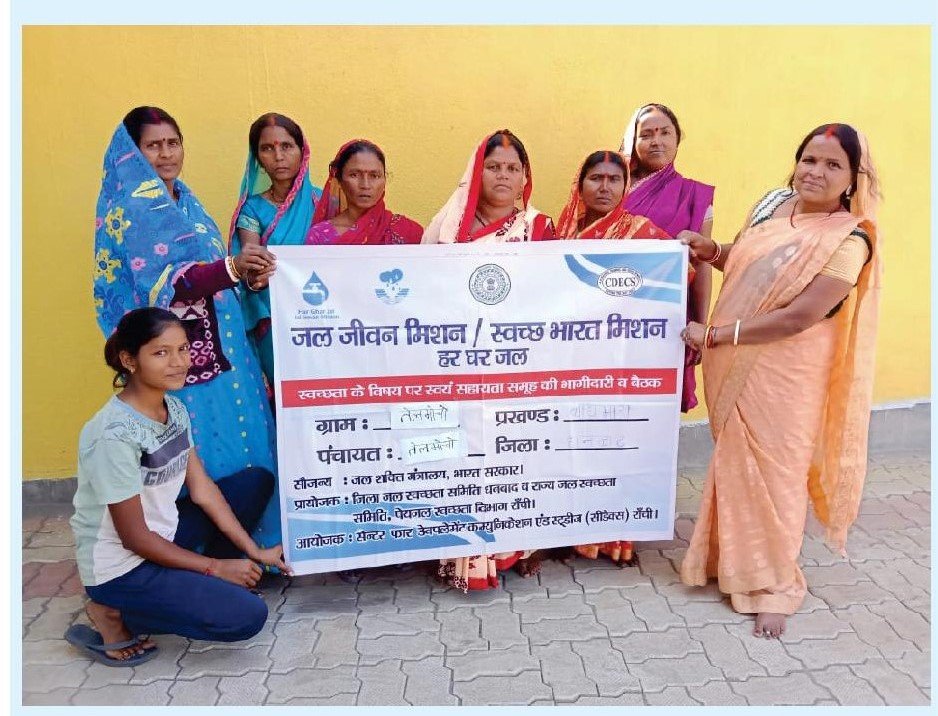
Key Role
- Partnership:
Work closely with Gram Panchayats, District Water and Sanitation Missions, and other stakeholders.
- Capacity Building:
Focus on building the capacity of local communities to manage their water resources.
- Sustainability:
The larger aim to ensure the long-term sustainability of water supply systems.
- Mission Mode:
The goal is to achieve universal access to safe drinking water in rural areas by 2024.
In essence, ISAs are vital partners in the Jal Jeevan Mission, helping to translate the mission’s goals into reality by empowering communities and building sustainable water supply systems.
B. Apna Gaon Swachh Gaon Pariyojna – Malpura Block, Tonk
Apna Gaon Swach Gaon Pariyojna (Integrated Water & Environmental Sanitation Project) focussed on sanitation and accessibility and availability of drinking water source in each habitation of the block. The project emphasizes on the formation of Water user group of each drinking water source, ensure operation & maintenance by the Village level Water & Sanitation committee in each revenue village. 15 panchayats of the block was covered under the project. Also, Swajaldhara was introduced during the project implementation in which Village & panchayat level committee formed for getting subsidy from the government under Swajaldhara scheme. The training of women and community people for O&M of drinking water source organized at each level. Training of HP mechanics organized under the guidance of PHED officials in the block. Water User group of each source formed at village level and regular meeting ensuring collection of some amount as contribution for the maintenance of source introduced during the project. The concept of sanitation, hygiene education i.e. handling & uses of drinking water, maintenance of its environment and disposal of waste water also been communicated in the community.
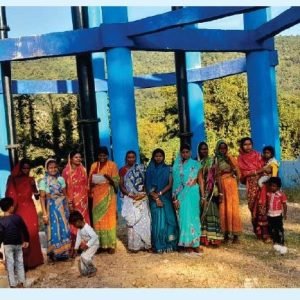
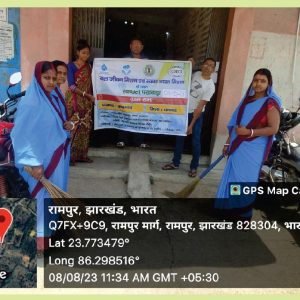
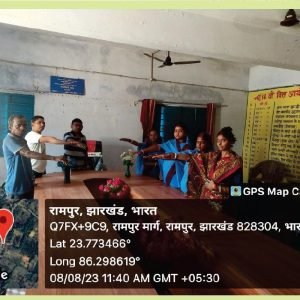
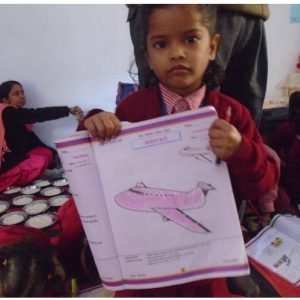
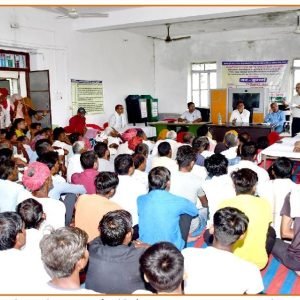
Objectives of the project
- Ensure Hygiene practice amongst community with availability of sanitary units in each Household of the village.
- Assess, Analyze present status of functional capacity for water, health and sanitation management at the community level & ensure accessibility of water by community people.
- Formation of Water user groups, VWSC in each village and panchayat of the block.
The following key features in the sanitation component are based on a stepwise participatory approach:
- Awareness generation and need establishment for sanitation facilities
- Motivation on adoption of routine and healthy hygienic behavioural patterns
- Capacity building in all aspects of the programme
- Organisation of village sanitation with support of WHCs, women’s groups and general community
- School sanitation programmes
- Masons training programmes for construction of low-cost sanitation facilities
- Construction of sanitation packages
- Training and follow-up programmes on proper use and maintenance of sanitation facilities
- Ensuring effective involvement of males, females and children in all activities
Women Participation
The benefits of improved health and living conditions from AGSGP, water supply can only be achieved with strong women’s participation. Women are responsible for safe collection, handling and storage of water. It is up to them to use the new installed water supply to improve domestic and kitchen cleanliness. It is the woman who can translate the benefits of this water supply into development of personal hygiene in her children. It is the women who directly benefit from abundant and regular water supply as well as from sanitation facilities at their doorstep, which enable them to maintain personal hygiene. In this background, the active participation and mobilisation of women for our project activities is of great importance for its success, so much so that women’s participation has been made a separate project component in its own right.
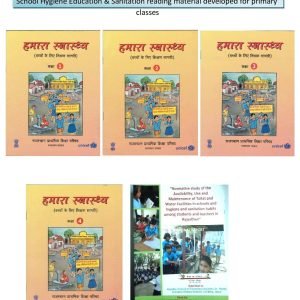
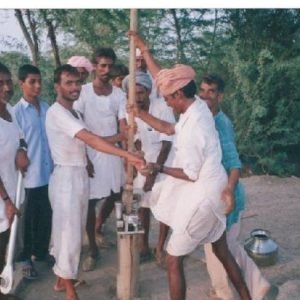
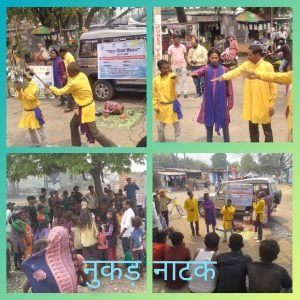
School Water & Sanitation Project – Alwar & Tonk
- Human resource development/ institutional strengthening- Training of Teachers, Head masters and SDMC members in school premises.
- Promotion of health & Hygiene activities at school level – Wall painting, Health Checkups, Dissemination of sanitation messages by schoolteachers in classroom teaching, Hygiene education as a part of school curriculum, Debates and quiz competitions on sanitation in school.
- Dissemination of learnt and practiced behaviour to family and community through the school & establishing linkages with service delivery centres- Organizing regular PTA meeting to discuss observed changes in behaviour of children, Construction of low cost model latrines in all schools, Immunization session at school in one day, Visit to PHC by school children, Visit of ANM in the school, Immunization session at school in one day, Visit to PHC by school children, Organizing Social mobilization activity.
Capacity Building for Village Planning – Gram Shakti, Newai Block (191 villages)
- Conducted Village Contract Drive (VCD), Slogan writings, Monitoring and communication board under National Rural Drinking Water Quality Monitoring & Surveillance Programme (NRDWQM&SP) in 345 villages of Kota Division, Rajasthan
- Conducted VCD, slogan writings, and and and monitoring and communication boardsss under various water and sanitation projects in Alwar, Tonk, Jaipur, Bikaner,,, and Baran districts.
- Conducted trainings on water quality.
- Conducted trainings for HP mechanics, HP caretakers, and women mechanics.
- Conducted trainings on fluoride awareness and treatment andandand O&M of DDFU to school teachers and schoolchildrenenen.
- Conducted trainings for the medicalical department, ICDS, school teachers, PRIs, Panchayat Support Groups,, and Rural Development Department functionaries.
- Supporting TSC Block and District, namely Tonk and Alwar.
- Experience organizing more than 1500 VCDs under different projects.
- Experience of painting slogans, wall writings, and paintings in more than 1000 villages.
- Training of Grassroots level functionaries namely, ANM, AWWs, ASHAsss, school teachers, and PRIs,RIs, on various component of Integrated Village Planning Project (Gram Shakti) project in 191 villages of Newai Block of Tonk district—theroject improving the Quality of Life of women and children and improvingroving the sectoral programmes for social and health development— — Trained more than 200 grassroots functionaries. The project is supported by Zila Parishad and UNICEF.
- Experience with WaterAID India in the developmentment of training modules on hand pumpss, sanitation,, and solid waste management mainly aimed at the promotiontion of environmental and health awareness amongst the community, children,, and women.
- Experience of National Rural Drinking Water Quality Monitoring & Surveillance Programme (NRDWQM&SP) in 345 villages of Kota Division, Rajasthan, with support from CCDU Rajasthan.
- Integrated Village Planning Process (IVPP) in East Singhbhum, Jharkhand
PLA exercise for resource mapping and assessment of available resources (drinking water) organized, capacity building of community people, especially focused on women & children for hygiene practices at home. Formation of a water user group and a village-level water & sanitation committee in each village. The project was supported by UNICEF and guided by district administration.
WaterAid India Collaboration
- To establish a process of participatory planning, monitoring,, and management of the initiatives by involving all stakeholders.
- To empower communities to take charge and make informed decisions
- To develop a community-owned village development plan.
- Awareness generation through information sharing and building a knowledge base for informed choice.
- Intensive community consultations through the Assess,ess, Analyze, and Action strategy.
Building partnerships between service providers, communities, PRIs, and CBOs.
- Sustainable Community structure in the form of VDC or any other committee that represents the community
- Improved quality and access of service
- Community Monitoring the Key Indicator
Integrated Village Planning Process (IVPP), East Singhbhum, Jharkhand
Supported by: UNICEF
Activities included PLA-based resource mapping, VWSC formation, and hygiene promotion among women and children. Emphasis on community ownership and service linkages.
Promotion of Handwashing & Hygiene – Gram Shakti Project
Coverage: 400+ villages in Jaipur, Tonk & Alwar
Key Training Outputs:
30+ mason trainings for low-cost toilets
24 community mobilizer trainings on BCC
100+ VWSC trainings
120 user group trainings at village and panchayat level
Statewide WASH Programs
CDECS has been a pioneer in school sanitation programs in Rajasthan. Initially piloted in Alwar and Tonk districts, the project scaled statewide across all 33 districts in collaboration with Rajasthan Council of Primary Education.
Training Manual Development
Prepared comprehensive manuals for WaterAid India on:
Drinking water safety
Sanitary toilet construction
Solid & liquid waste disposal systems
Other Training and Assessment Experience
PRI Training Assessment in 18 States for Ministry of Panchayati Raj, GoI
Census 2011 trainings at state/district levels
RTE Act SMC capacity-building (1200 members in 34 trainings)
SABLA adolescent training program (22 technical sessions)
IWMP 3rd Party Evaluation for YASHADA
60+ WASH trainings across 4 districts under NRDWQM&SP
Pilot Project – Pour-flush Toilets (Beed Ganver, Tonk)
Supported by: German Embassy
100% HH toilet coverage in SC-dominated village
Twin-pit, tiled pour-flush toilets constructed
Significant improvement in village sanitation and hygiene standards
Supplementary Knowledge Products
School Hygiene Reading Material for primary students
Community Newsletter on sanitation & hygiene practices
